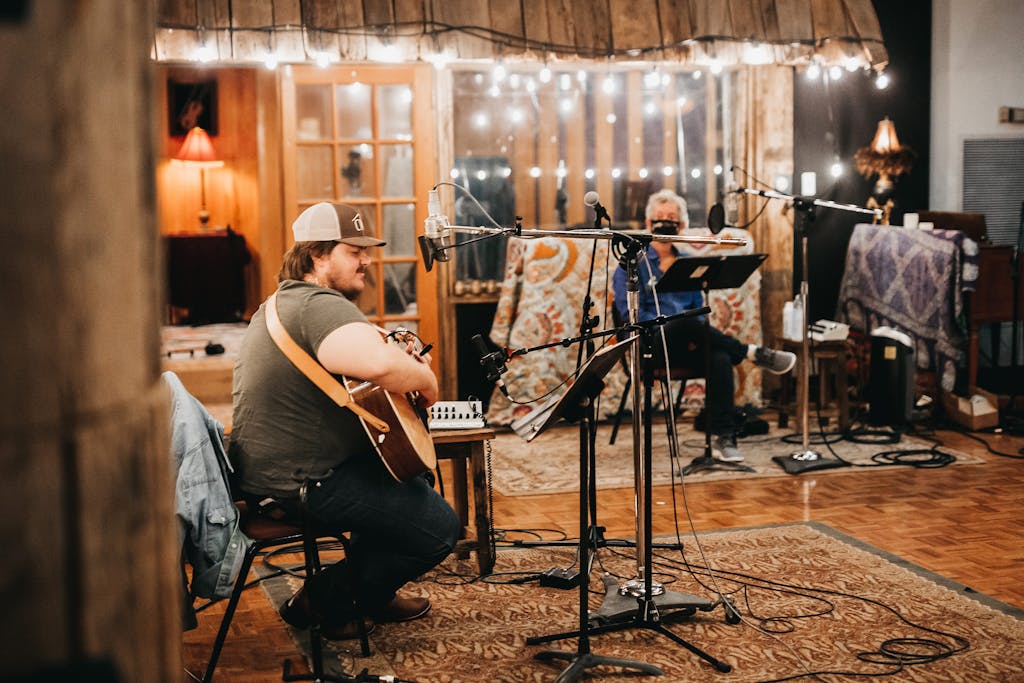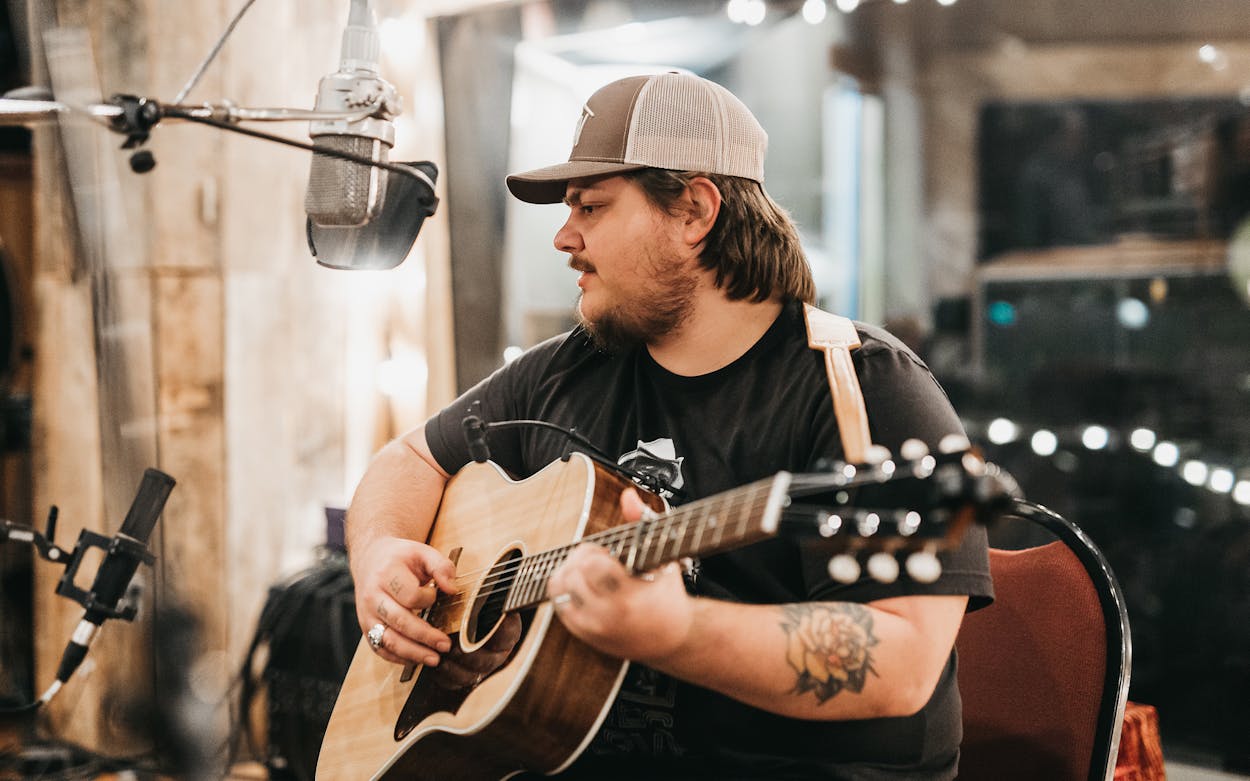“I spent my whole life/Wonderin’ why I’m down,” Vincent Neil Emerson sings, not long into his new, self-titled sophomore album. “I don’t feel easy if the blues don’t come around/And my face don’t look right without a frown.”
It’s a difficult needle to thread—music that’s grim yet gripping—but one that Emerson does with ease. It’s evident for this Fort Worth–based singer-songwriter that his songs are as much personal catharsis as they are a calling card.
Off-stage, the cherubic Emerson has weathered a lifetime’s worth of hardship in his 29 years: his father’s suicide, alcoholism, his little brother’s death in a house fire, dropping out of high school at age seventeen, homelessness, and a best friend’s killing in an argument over drugs.
“That’s the moment that I found out just how bad things could get if I didn’t find a better path,” Emerson wrote in a 2013 Indiegogo post. “Life get’s [sic] real sometimes.”
Given all the tumult in his life, it would be understandable if Emerson’s music tacked toward the lurid—harrowing tale upon harrowing tale that might set even Porter Wagoner’s hair on end.
Instead, the Myrtle Springs–bred Emerson, who has been honing his craft for the past dozen years, charts a different course, one conveying horror and hope in the same simple and direct language.
The material is no less lacerating for his approach. The sweet lines of fiddle and dobro behind his lyrics can feel wrapped in razor wire. His clear, resonant voice, lined with the weight of his experience, is as likely to break your heart as bring a smile to your lips.
At its core, the ten-track album, out today, is a thrilling continuation of the raw, revelatory Texas troubadour tradition.
This new record is just the latest studio success for Emerson. He’s released a handful of independent EPs and albums over the past several years, and earned high-profile fans such as Colter Wall, Charley Crockett, and Jason Momoa (yes, Aquaman) on the strength of his colorfully titled 2019 LP Fried Chicken and Evil Women.
Given his backstory and Lone Star lineage, it comes as scant surprise that Emerson’s artistic journey began with his discovery of the late Townes Van Zandt. Within Van Zandt’s catalog, Emerson found a guiding light and a model for how best to locate the poetry in pain.
Echoes of Van Zandt’s eloquent, bruised vulnerability abound throughout Vincent Neil Emerson. “I thank my stars that I ain’t dead/I spent my whole life in the red,” he sings on “Debtor’s Blues,” while “Ripplin’ and Wild” is breathtaking in its self-awareness: “I’m the son of a child/And I’m ripplin’ and wild/And I hide in the pleasures I find.”
No less a living Texas music eminence than Rodney Crowell has cosigned Emerson’s ascent, coming on board to produce the new record on the strength of Emerson’s demos alone.
Yet, if you didn’t already know Crowell produced Vincent Neil Emerson, you’d be hard-pressed to detect his fingerprints. From first track to last, Crowell stays out of his protégé’s way; such was the elemental power of Emerson’s initial demos that much of this 37-minute collection was cut live in single takes at Nashville’s Sound Emporium Studios.

Emerson is backed throughout by a loose quartet of session players, including bassist/guitarist Lex P. Price, multi-instrumentalist Rory Hoffman, vocalist Hannah Sutherland, and fiddler Eamon McLoughlin.
“If he grows on the public the way he’s grown on me, it’s possible young Vincent will plant the flag of his [songwriting] forebears firmly in the consciousness of a whole new generation,” Crowell said upon the album’s release.
Such bold pronouncements can help as well as hurt, putting something of a target on Emerson’s back, especially given the genre in which he’s working. When contending with country music writ large, the tendency to conflate the artist and the art can leave a listener tangled up in what’s fiction and what’s fact. For up-and-comers in particular, authenticity goes hand in hand with credibility.
Those seeking relief from the perceived plastic and flashy facades of Nashville’s output, however, often flock to musicians like Emerson who offer a sense of plainspokenness so palpable it feels like eavesdropping. Emerson is nothing if not laid bare, although he doesn’t dwell upon the miseries he’s endured. The exception to this rule is the shattering “Learnin’ to Drown,” where he pulls no punches: “My father killed himself/My mother hit the bar.”
Much of Vincent Neil Emerson feels wrapped up in the darkness of his trials and tribulations, but the riveting, occasionally rollicking record portends a bright future for the young singer-songwriter. Put another way: Vincent Neil Emerson likely won’t have to spend too many more days feeling down.
- More About:
- Music
- Country Music
- Fort Worth






